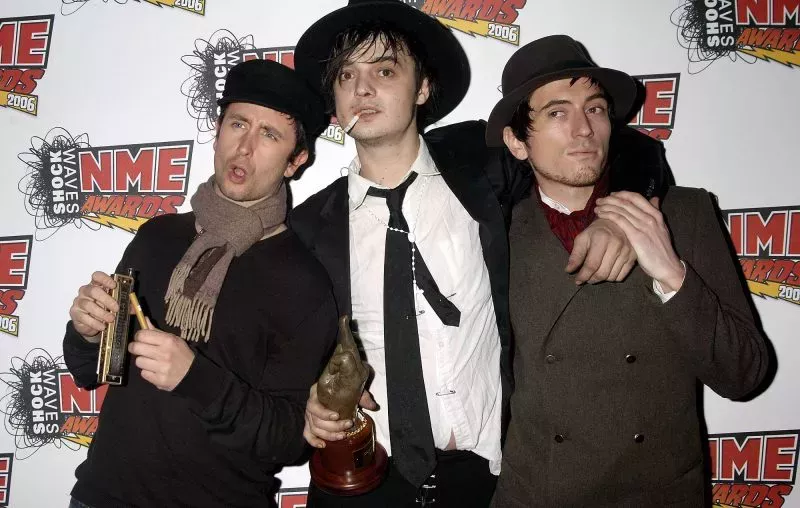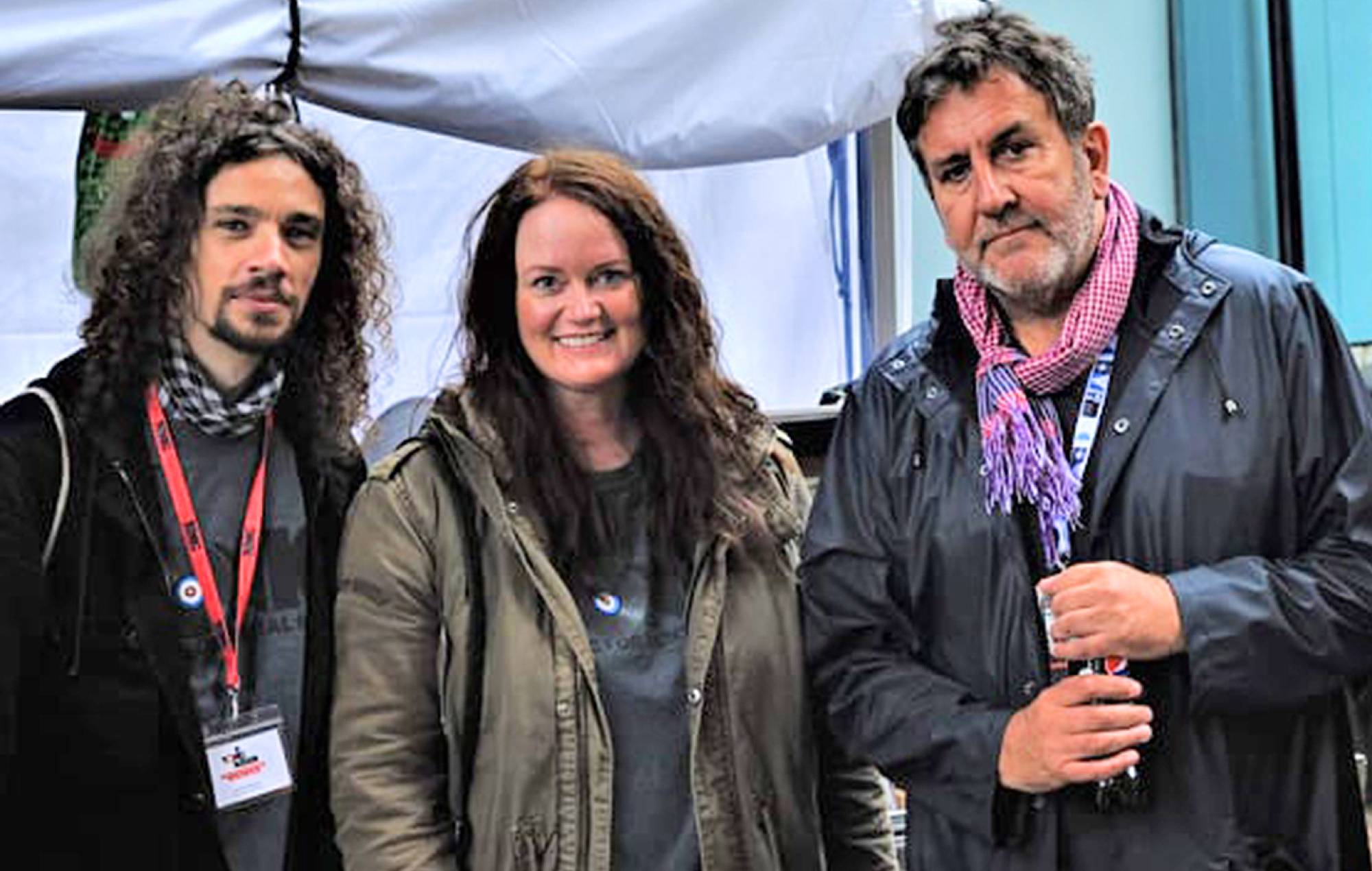Tonic, the mental health charity championed by late Specials frontman Terry Hall, spoke to NME about the vital services they provide to people working in the music industry.
Through various programs, activities and plans taught by trained experts and music industry peers, Tonic’s mission is to “promote good mental health through music”, having “helped many isolated and vulnerable people of our community”.
Terry Hall, who died in December, was one of the charity’s founders. Speaking to NME, Tonic CEO Steph Langan explained what it meant to have Hall as an advocate “from the start”, especially for an artist who often spoke about his own struggles.
When he first met Terry ten years ago, he had just started therapy, was on medication and was doing very well,” says Langan, “at that time, communication seemed very important to him.”
See this post on Instagram
A post shared by Tonic Music for Mental Health (@tonicmusicmh)
“He also wanted to encourage and advocate for others to communicate. That became a big part of his involvement with Tonic: to be that face and that presence for others to open up. Over the years, he opened up even more. more about his experiences.
Discussing Hall’s activity as a patron, he continued: “Terry invited us to all The Specials tours and allowed us a platform with a Tonic booth to have conversations with the public and the fans. This allowed other people to tell us their stories, often for the first time.
“The fact that Terry was a figure and gave us that platform to allow others to open up was really vital. He himself said he walked in a bubble for over 40 years before he see a therapist who said, ‘It’s okay, you have a mental illness and we can help you.’ What we are trying to do is prevent people from living with this anxiety. We are here to be preventative and proactive with support.”
Tonic has just celebrated the second anniversary of its Rider program, which aims to “provide tailored training and support to music industry professionals, both remotely and on-site”. Includes a peer support group, mental health first aid training, workshops, classes and more.
See this post on Instagram
A post shared by Tonic Music for Mental Health (@tonicmusicmh)
One of the main advisors and facilitators of the Tonic Rider program is Adam Ficek, composer, soloist with Roses Kings Castles, member of Babyshambles and now also a licensed psychotherapist.
“We know that musicians are susceptible to serious mental health issues,” Ficek told NME. “The reason I started working with Tonic was the focus not only on these struggles, but also on how music can help.”
Speaking of the unique occupational hazards that come with working in music, he said: “The industry itself is mostly nightlife, there’s an abundance of alcohol. There’s the social environment, and then there’s the psychological environment where people come from with their own wounds and how to interact with them.
“With popular musicians, they are often exposed to the more ‘show business’ nature of music, selling more on aesthetics and a philosophy of how things look rather than changing the airwaves of the things we listen to.”
He added: “It’s hard to be an artist, period. If you’re a creative, you have to satisfy the need to create. When you try to market it in an industry, you make it even harder because you are trying to generate income.”
See this post on Instagram
A post shared by Tonic Music for Mental Health (@tonicmusicmh)
Ficek said the mental strains that come with working in music often cause people to “forget why they got into the industry in the first place”, saying the help provided by Tonic would help them get through it.
“Music is a tough place because nobody really takes responsibility,” he says. “It’s usually a career in its own right, so is it the managers, the agents or the musicians themselves who have to take responsibility?”
It is not enough to talk about mental health, we must share experiences. There’s a big social media presence saying talking about mental health has been de-stigmatized, but I don’t think that’s true; I actually think it gives people a chance to escape more by exposing everything and running away. There is a big gap between what is happening and what is perceived to be happening.
“There are people doing podcasts about mental health awareness. So what? Having big key players like Terry to promote that was important because people can see the authenticity. It’s not just a celebrity who says, “I feel so sad, I’m here. cry on instagram. “It adds congruence and embeds it pretty much into what we do. All we want is for people to connect with people like me, and things like that didn’t exist before for people like me.”

Ficek says Tonic offers hands-on help and a sense of community, cutting through the noise and dogma of mental health discourse.
“Before this peer group, nobody was ready to do it,” he said, “everyone was constantly talking about ‘mental health awareness,’ but so what? It’s the bravery of Steph saying “let’s do it” who brought us here It’s self-funded, we know there is a need and people are struggling, but how do you join this community?
“Once people come, they come back again and again for that wealth of community and understanding that they gain.”
He added: “What I do as a musician, psychologist and psychotherapist is help people realize that things are not as screwed up as they think and that there is help there. You have to seek help. The biggest difficulty now is to seek it. It takes a lot of courage to say, “I’m in trouble.” It took me a long time.
See this post on Instagram
A post shared by Tonic Music for Mental Health (@tonicmusicmh)
Jeordie Shenton is the coordinator of Tonic Rider and told NME that mental health often isn’t as high a priority as it should be in the music industry.
“Right now there’s a lot of campaigning around streaming, saving venues, COVID, Brexit relief and touring, all about how music industry professionals are being affected by the economic and political issues, but we often forget to connect the impact of these aspects on people’s mental health,” he said.
The association has two main programs: Never Mind The Stigma, aimed at the general public, and Tonic Rider, which aims to promote good mental health in the music industry.
“He offers training classes, support groups, conversation workshops, and one-on-one sessions,” Shenton explains, “all of which are free and mostly online. Adam runs most of our support groups for musicians, Teams and Places staff, who attend six-week sessions for 90 minutes a week.You can talk about anything and have the support of like-minded peers.
“All of the entertainers are mental health professionals – psychotherapists, counselors, mental health first responders – but they are all qualified in the music industry. It is important to have experience in the music industry and a mental health qualification.”
See this post on Instagram
A post shared by Tonic Music for Mental Health (@tonicmusicmh)
Shenton said that the core of Tonic’s work is “to support people by helping them support themselves, their colleagues and the music industry in general”.
“We not only work with musicians who have mental health issues, but also those who are mentally healthy but want to learn the skills they need to help others in the industry. There is an effect training that passes on skills. That’s what we want: a healthier, more positive music industry.”
He continues: “We all love music and we want it to be a safe space for people to work in. It would be great if one day we could close up shop and say, ‘Everybody’s got great mental health’, but it’s never okay However, if we can help reduce the prevalence of anxiety, depression and serious mental disorders, that’s what we’re here for.
While there’s still a lot to be desired in the industry as a whole, Shelton thinks things are looking up thanks to Tonic and other like-minded people.
“In the music industry, we’ve been raising awareness about mental health for about 10 years, now we’re taking action,” he said, “things are available and they’re accessible. It’s not enough to talk about health mental, you have to share experiences.”
“In the short time that I have worked and researched mental health, things have changed quite quickly.”
For more information on Tonic, go here.
More mental health help and advice:
- ‘I’m depressed?’ – Help and advice on mental health and what to do next
- Help Musicians UK – Ongoing mental health help and advice for musicians
- Music Support Org – Help and support for musicians struggling with alcoholism, addiction or mental health issues
- YOUNG MINDS – The voice of youth health and wellbeing
- CALM – Campaign Against Poverty
- The Samaritans – 24-hour confidential support

